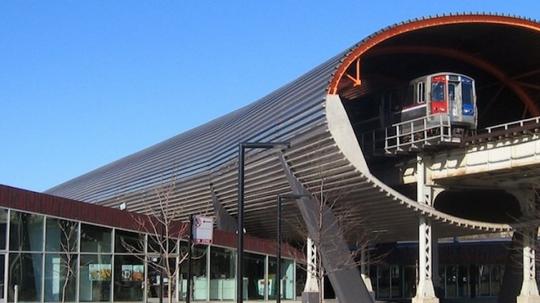
A data-driven crime prevention program, cyberbullying early warning and response system and a microfluidic drug-microbiota interaction platform are all in the running for $1 million in total funding from the Illinois Institute of Technology.
The three projects are finalists for Illinois Tech's Nayar Prize, a social impact innovation competition that challenges Illinois Tech students, faculty and researchers to create comprehensive solutions with meaningful impact on the pressing problems of our time. Finalists initially receive $100,000, and must show significant progress toward a solution within a year. The two teams that show the most promise will receive an additional $100,000 to continue work for another year. A final team gets an additional $100,000 to continue their project for the third year, and upon completion of their goals, the team gets $500,000.
This is the second year the Nayar Prize has been offered. Last year's teams included a comprehensive infrastructure plan for driverless cars in cities, a cancer imager that can map characteristics of cancer at a cellular level and a highly interactive game to boost early childhood development. Illinois Tech will announce the second round finalists this month, and announce the winner of the first Nayar Prize next year.
“The projects selected for the Nayar Prize represent the incredible work, and creative and critical innovations, coupled with the ambitions of the university,” said Frances Bronet, provost at Illinois Tech, in a statement. “The array of entries crossed all disciplines and embodied a commitment to solving difficult and pressing large-scale issues through technological and social analysis that offers clear and applicable action plans.”
Here's a look at this year's Nayar Prize finalists.
A Data-Driven Crime Prevention Program Team members include Miles Wernick, professor of electrical, computer and biomedical engineering, and director of the Medical Imaging Research Center; Lori Andrews, professor of law and director of the Institute for Science, Law and Technology at Chicago-Kent College of Law; and Yongyi Yang, professor of electrical, computer and biomedical engineering.
The goal is to design, implement and deploy a "flexible, new model for crime prevention" that can be used in a variety of communities in the US. Researches will work on predictive modeling technology, along with a legal-ethical framework so the tech respects privacy rights and is accepted by the community. The model will be developed in partnership with the Elgin Police, and an intervention program from their project will be used in the city of Elgin.
Cyberbullying Early Warning and Response System Team members include Libby Hemphill, associate professor of communication and information studies; and Aron Culotta, assistant professor of computer science.
The goal of this project is to develop software tools to forecast cyberbullying threats and vulnerabilities on social networks. Researchers will base their work on advances in natural language processing, machine learning, and social network analysis to create a cross-platform tool that helps individuals and communities to intervene in cyberbullying in real-time.
Microfluidic Drug-Microbiota Interaction Platform Team members include Abhinav Bhushan, assistant professor of biomedical engineering; Genoveva Murillo, research assistant and professor of biology at the IIT Research Institute; and Rajendra Mehta, professor emeritus of biology at the IIT Research Institute.
The goal of this project is to create a discovery platform to assess drug-microbiota interactions. The idea is that intestinal microbiota alter the metabolism of drugs, and due to the increased use of probiotics and increase in antibiotic resistance, drug-microbiota interactions have lowered the efficacy of approved drugs for many patients. However, there is no platform to model this new intestinal microenvironment. So this team will create a more physiologically relevant model of the intestine to help aid the research process.








